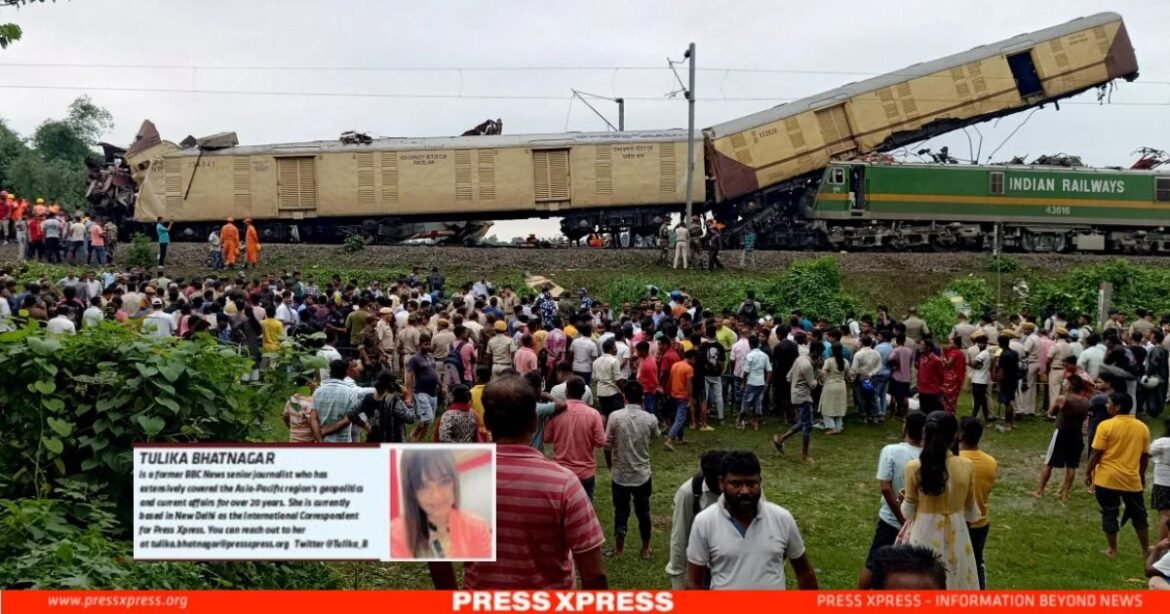At least 15 people died and several others were injured on Monday when a goods train collided with the 13174 Down Agartala-Sealdah Kanchanjunga Express, in West Bengal’s Darjeeling district.
The accident took place around 10 km from the New Jalpaiguri station at 8.55am local time.
Kanchanjunga Express was moving slowly when a speeding goods train travelling on the same track hit it from behind. This derailed four coaches of the Kanchanjunga Express and five wagons of the goods train.

As a result of the impact of the collision, the coaches were badly mangled making it tough for the rescue personnel to extricate the dead and the wounded.
According to Jaya Varma Sinha, Chairperson of the Railway Board, the goods train driver had disregarded the red signal, hitting the Kanchanjunga Express. Sinha revealed that the loco pilot of the goods train and the guard of Kanchanjunga Express had died in the accident.
Investigations are ongoing into the exact cause and other reasons related to the accident. Railway authorities are also analysing the procedure followed by the good trains in view of its authority to bypass red signals in this particular instance.
You Can Also Read: INDIAN TRAIN CRASH: ALMOST 300 DEAD AND AROUND 900 INJURED
Meanwhile, Railway Minister Ashwini Vaishnaw announced an ex-gratia of INR 10 lakh to the kin of the deceased, INR 2.5 Lakh for those grievously injured, and INR 50,000 for minor injuries.
Prime Minister Narendra Modi also posted on his social media handle on X: “The railway accident in West Bengal is saddening. Condolences to those who lost their loved ones. I pray that the injured recover at the earliest. Spoke to officials and took stock of the situation…”
However, West Bengal Chief Minister Mamata Banerjee blamed the Railways Ministry and recalled her earlier days as the Railway Minister under the Congress-led UPA (United Progressive Alliance) government. “When I was Rail Minister, I first implemented the anti-collision system. But all trains in India are still not under this system. Passenger safety is negligible in the current state of Indian Railways. There is no rail budget. The Ministry is there just in name,” Banerjee said.
Monday’s accident brought back memories of the tragic Coromandel Express accident in Odisha in 2023, which claimed about 290 lives. Human error and signalling issues were held responsible for the tragedy, which involved three trains and turned out to be among the biggest train accidents in the country.
Here is a timeline of some of the worst train disasters in India:
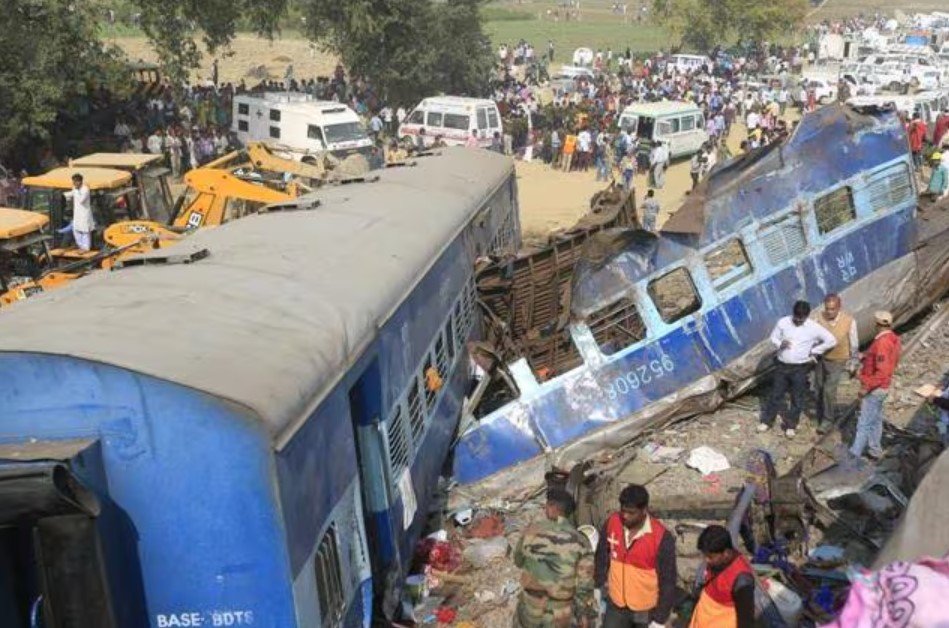
2016: Indore-Patna Express train
- Derailment near Pukhrayan, Kanpur, Uttar Pradesh (UP)
- Casualty: 150 deaths, 150 injured

2010: Kolkata-Mumbai Passenger train
- Collision with freight train near Kolkata, West Bengal
- Casualty: 146 deaths, over 200 injured
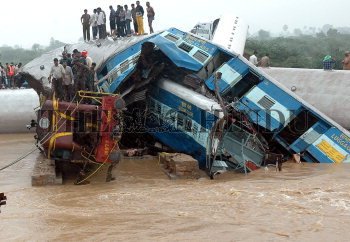
2005: Delta Fast Passenger train
- Derailment due to flash flood, near Valigonda, Telangana
- Casualty: 114 deaths, 200 injured
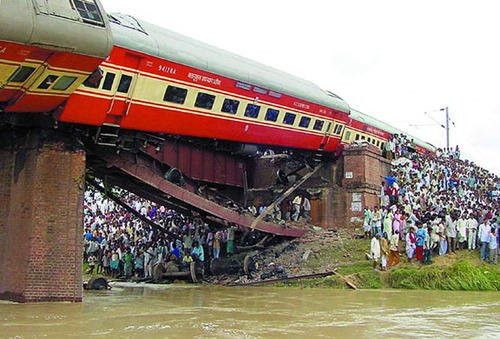
2002: Howrah Rajdhani Express train
- Plunging into Dhabi river, near Gaya, Bihar
- Casualty: 130 deaths, 145 injured
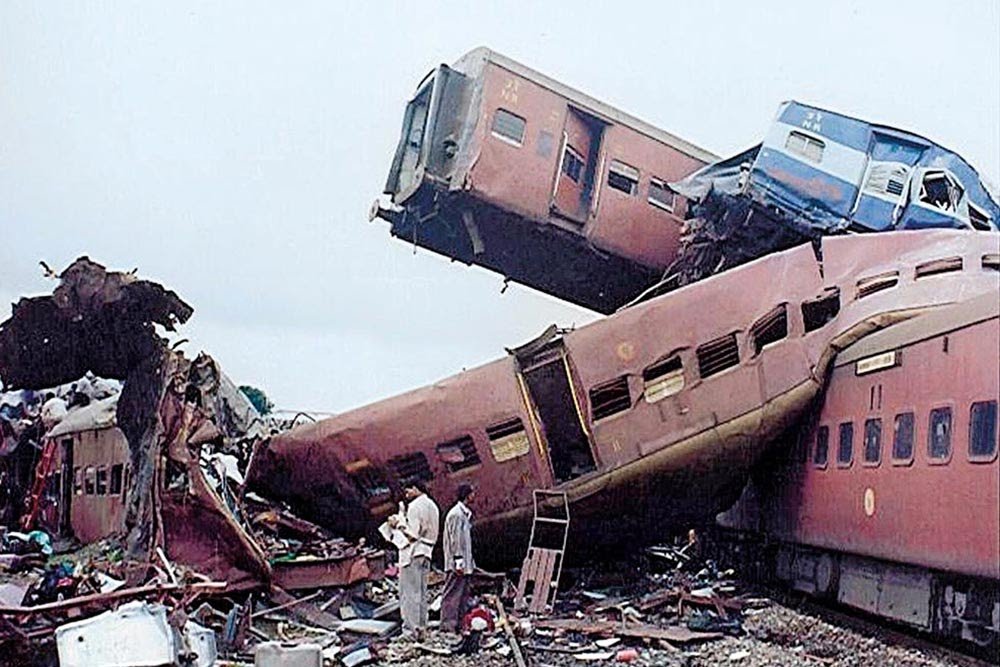
1999: Avadh-Assam Express train
- Collision with Brahmputra Mail train, at Gaisal rail station, West Bengal
- Casualty: 285 deaths, 300 injured

1998: Jammu Tawi-Sealdah Express train
- Collision with derailed coaches of the Frontier Golden Temple Mail at Khanna, Punjab
- Casualty: 212 deaths

1995: Purushottam Express train (second-worst train disaster in India)
- Collision with stationary Kalindi Express near Firozabad, UP
- Casualty: 400 deaths
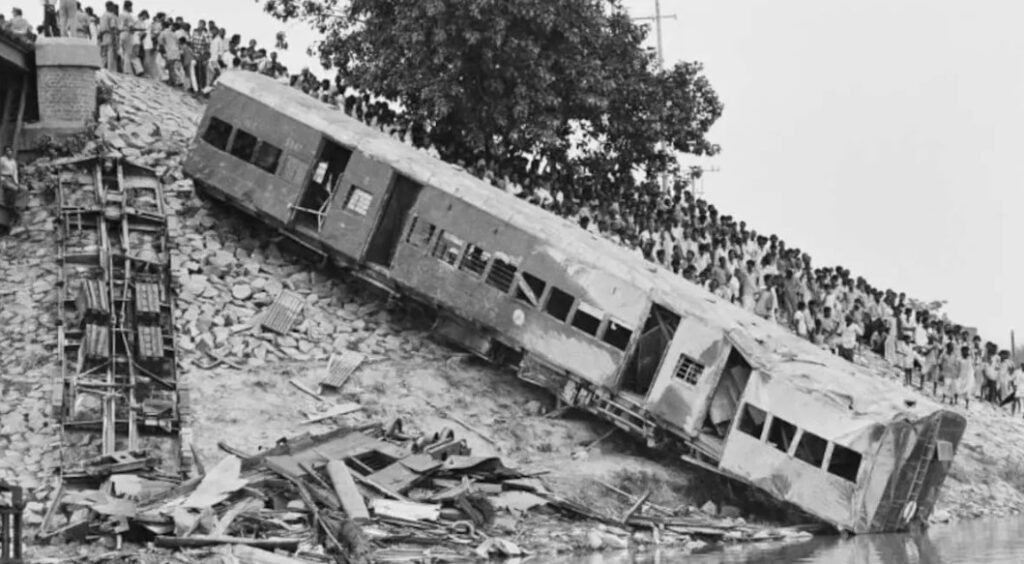
1995: Bihar Passenger train (worst train disaster in India, 4th in the world)
- Derailment and falling into Bagmati river, near Saharsa, Bihar
- Casualty: 800 deaths (estimated)

